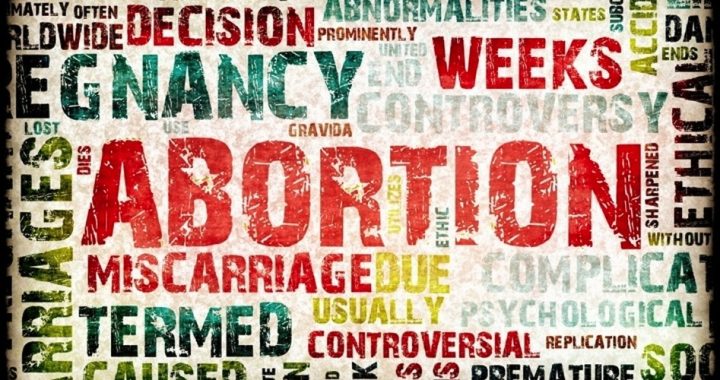
#ShoutYourAbortion is a social media campaign that encourages women to share stories about their abortions in an effort to “destigmatize” abortion. While the campaign has provoked severe criticism, the Washington Post decided to give it a front page cover story in Monday’s “Style” section, treating abortion as if it’s this season’s trendiest fashion statement.
Newsbusters reports on the social medium campaign, “Founders Amelia Bonow and writer Lindy West jumpstarted #ShoutYourAbortion on Twitter in September when the House of Representatives voted to defund Planned Parenthood. When Bonow shared the story of her own abortion at Planned Parenthood on Facebook, West tweeted it to her more than 61,000 followers with the hashtag: #ShoutYourAbortion.”
In an interview following the launch of the campaign, Bonow insisted that the movement is not meant to be celebratory but that its intent is to make women who have had abortions feel unashamed.
“A shout is not a celebration or a value judgment; it’s the opposite of a whisper, of silence,” Bonow said. “Even women who support abortion rights have been silent, and told they were supposed to feel bad about having an abortion.”
And yet West’s Facebook page features a post regarding her own abortion that can only be described as celebratory.
“Having an abortion made me happy in a totally unqualified way. Why wouldn’t I be happy that I was not forced to become a mother?” she wrote.
In the Post’s report on the campaign, Bonow further explained that the campaign seeks to make clear that simply not being ready to have a child is a “valid” reason for choosing abortion.
“When you look at a woman’s face and she tells you, ‘I just wasn’t ready’ — that’s enough,” proclaimed Bonow. “And this culture has never made women feel like that’s enough.”
In other words, despite the prevalence and easy access to contraception, abortion should be available for those women that did not realize until after they engaged in intercourse and created a child that they simply were not ready.
Both founders and supporters for this movement seem to acknowledge that its intent is to achieve “culture change” so that abortion becomes more accepted and less stigmatized.
“The problem for a long time was that this stigma felt like a negative cloud,” said Kate Cockrill, the executive director of Sea Change, a nonprofit organization that also seeks to destroy the stigma. “There has been so much focus on legal strategies, and not a lot of attention to strategies for culture change.”
Bonow contends that women should not allow society to tell them how they should feel about their own abortions. “Women should be the ones to define the experience of what abortion is, instead of colluding to this idea that it’s bad, and that we’re bad,” she says. “It’s finally feeling like we’re not alone, and we don’t have to be quiet anymore.”
It’s not enough that abortion has been sanctioned by the courts; it must also be sanctioned by society.
Sadly, the Washington Post’s coverage of the campaign can only be described as praise. In Caitlin Gibson’s analysis of one #ShoutYourAbortion video testimonial, wherein a woman admitted, “I didn’t feel sad. I didn’t feel angry. I didn’t tell the person who got me pregnant. And I didn’t look back,” Gibson remarked that the woman’s lack of shame is what “embodies the tone” of the movement.
But is lack of shame something to be applauded in this scenario? The woman admitted that she chose to terminate the life of her unborn child without so much as alerting the paternal father of the child’s mere existence. Is that something for which someone should be unapologetic?
Gibson continued, “By presenting a collection of nuanced narratives, #ShoutYourAbortion aims to advance a message of broader acceptance: If your abortion experience was hard and sad, that’s okay. If your abortion experience wasn’t hard or sad, that’s also okay.”
The response to the #ShoutYourAbortion campaign has been mixed. While there has been plenty of predictable support amongst major pro-abortion organizations such as Planned Parenthood and NARAL Pro-choice America, there has been severe backlash as well. Bonow reportedly had to leave her home for a few weeks after she received threats from Twitter users, though she later emphasized in a blog post advertised by the Shout Your Abortion Twitter page that she had “not received any acute seemingly credible threats.”
Much of the criticism came from users who were disturbed by what they perceive as a cavalier attitude to a great tragedy.
One Twitter user named Lindsay posted, “#ShoutYourAbortion is trending … what a sad day. That’s like Hitler tweeting #ShoutYourGenocide.”
Michele Bachmann, former Republican member of the House of Representatives, tweeted that the campaign “gives a new meaning to macabre.”
The New York Times reported in October that the hashtag #ShoutYourAdoption was created in response to the campaign, and drew over 8,000 responses. That movement asks women to consider a better alternative to abortion.
“When you’re faced an unwanted pregnancy, you can choose the heartbreak of placing a baby for adoption, or you can end the baby’s life,” said Liberty Pike of Portland, Oregon, who works for Oregon Right to Life. “I think the right to life should always trump the right to live as you choose.”
#ShoutYourAdoption is seemingly not fashionable enough for the Washington Post’s Style section.




